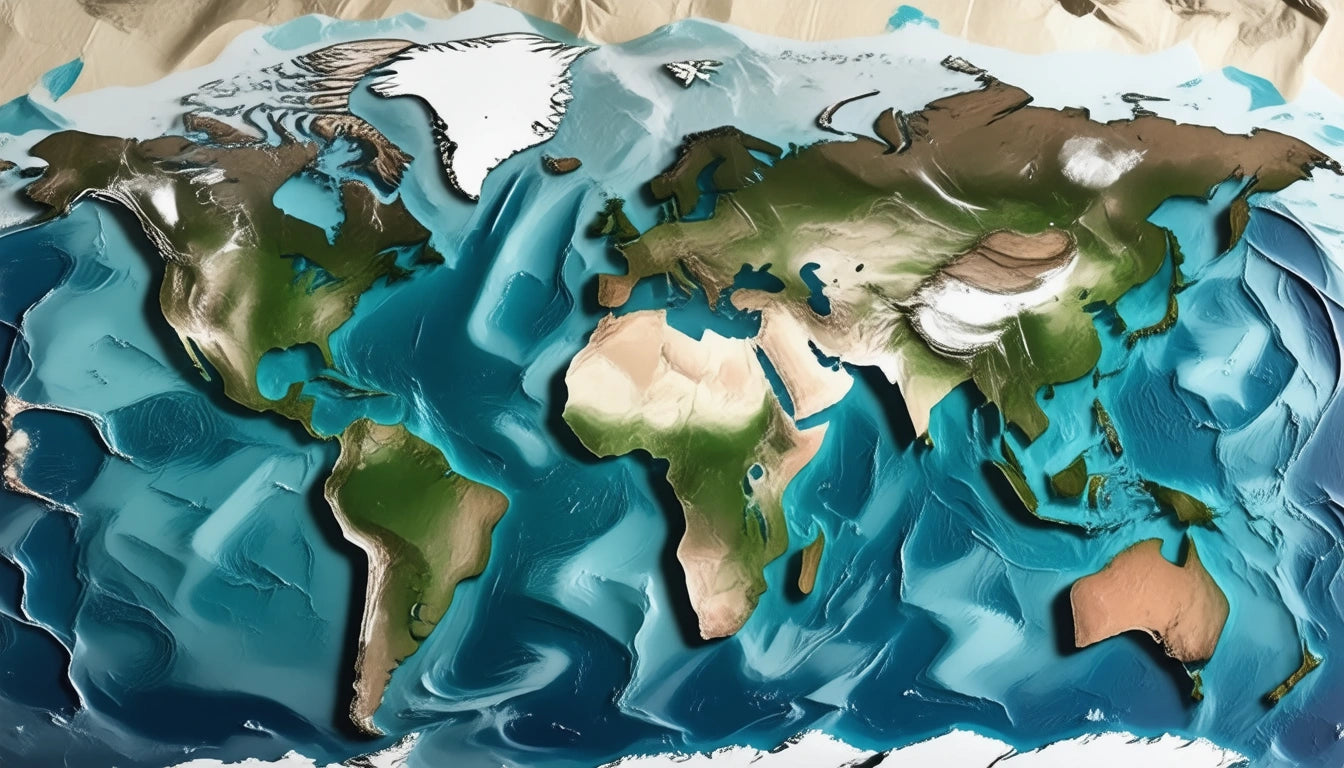Table of Contents
- Understanding Cannabis Legal Status: Legalization vs. Decriminalization
- North America: Progressive Cannabis Reform
- Europe: A Mixed Cannabis Landscape
- South America: Emerging Cannabis Policies
- Asia and Oceania: Strict Cannabis Regulations with Exceptions
- Africa and Middle East: Traditional Use vs. Modern Laws
- Future of Global Cannabis Legalization: Trends and Predictions
A Global Guide to Marijuana Legalization and Decriminalization
The legal status of cannabis continues to evolve worldwide, with countries adopting approaches ranging from full legalization to strict prohibition. Understanding where weed is legal, decriminalized, or illegal is essential for travelers, policy advocates, and industry professionals. This comprehensive guide maps the current global landscape of marijuana legislation across continents.
Understanding Cannabis Legal Status: Legalization vs. Decriminalization
Before exploring where cannabis is legal worldwide, it's important to distinguish between legalization and decriminalization:
- Legalization: Cannabis use, possession, cultivation, and sale are permitted under specific regulations. This typically includes recreational and/or medicinal frameworks.
- Decriminalization: Possession of small amounts for personal use doesn't result in criminal charges but may incur civil penalties or fines. Production and sale often remain illegal.
- Medicinal Only: Cannabis is permitted solely for prescribed medical purposes under varying degrees of restriction.
- Fully Illegal: All cannabis activities are prohibited with potential criminal penalties.
As legislation changes rapidly, this guide represents the current landscape as of publication, but readers should verify current laws before travel or business decisions.
North America: Progressive Cannabis Reform
United States
The United States presents a complex patchwork of cannabis laws varying by state. As detailed in our comprehensive guide to U.S. cannabis legality, marijuana remains federally illegal but state laws differ dramatically:
- Recreational and medical use legal: 24 states including California, Colorado, New York, and Michigan
- Medical use only: 15 states including Florida, Pennsylvania, and Ohio
- Fully illegal: 11 states including Idaho, Wyoming, and South Carolina
For businesses operating across state lines, this fragmented regulatory environment creates unique challenges for packaging and distribution. Many companies use specialized filling equipment for consistent product preparation that meets varying compliance standards.
Canada
Canada legalized recreational cannabis nationwide in October 2018 through the Cannabis Act. Adults can possess up to 30 grams of dried cannabis in public, grow up to four plants per household, and purchase from licensed retailers. Provincial regulations govern retail models, with some provinces allowing private stores while others maintain government monopolies.
Mexico
Mexico decriminalized possession of small amounts of cannabis for personal use in 2009. In 2021, the Supreme Court declared prohibition unconstitutional, effectively decriminalizing recreational use. However, comprehensive regulations for legal production and sales are still developing.
Europe: A Mixed Cannabis Landscape
Progressive European Nations
Several European countries have adopted progressive cannabis policies:
- Netherlands: Famous for its coffee shop system, cannabis remains technically illegal but is tolerated through a policy of non-enforcement for small amounts.
- Portugal: Decriminalized all drugs in 2001, treating possession as a public health rather than criminal issue.
- Spain: Private consumption and cultivation are decriminalized, with cannabis social clubs operating in a legal gray area.
- Luxembourg: Plans for regulated legalization are in development.
- Germany: Legalized limited possession and home cultivation for adults in 2023, with plans for regulated sales.
Conservative European Approaches
Other European nations maintain stricter policies:
- France: Despite having one of Europe's highest consumption rates, France maintains strict prohibition with recent limited medical trials.
- Sweden: Maintains a zero-tolerance approach with criminal penalties for possession.
- Finland: Prohibits cannabis with criminal penalties, though enforcement for personal use varies.
South America: Emerging Cannabis Policies
South America has seen significant cannabis reform in recent years:
- Uruguay: Became the first country worldwide to fully legalize recreational cannabis in 2013, with a state-controlled market.
- Argentina: Decriminalized personal possession and legalized medical cannabis.
- Colombia: Decriminalized personal possession and legalized medical cannabis, becoming a major producer for international markets.
- Brazil: Decriminalized personal possession with medical cannabis available through special authorization.
- Chile: Decriminalized private personal use and cultivation, with legal medical cannabis.
Asia and Oceania: Strict Cannabis Regulations with Exceptions
Asia's Prohibitionist Approach
Most Asian countries maintain strict cannabis prohibition:
- Japan: Enforces strict anti-cannabis laws with potential prison sentences for possession. The question of how illegal is weed in Japan has a clear answer: extremely, with penalties of up to 5 years for possession.
- Singapore: Imposes severe penalties including capital punishment for trafficking.
- China: Prohibits cannabis use and possession with harsh penalties, though industrial hemp cultivation is permitted in some regions.
- South Korea: Strictly prohibits cannabis, even pursuing citizens who use legally abroad.
Progressive Exceptions
A few Asian nations have reformed cannabis laws:
- Thailand: Made a surprising shift in 2022 by decriminalizing cannabis possession and allowing home growing.
- India: Has a complex relationship with cannabis, with traditional use of bhang permitted in some contexts while marijuana remains federally illegal.
Oceania
Australia has legalized medical cannabis federally, with the Australian Capital Territory legalizing personal use and cultivation. New Zealand has a medical cannabis program, but a 2020 referendum to legalize recreational use narrowly failed.
Africa and Middle East: Traditional Use vs. Modern Laws
Despite traditional cannabis use in many African cultures, most countries maintain prohibition. Notable exceptions include:
- South Africa: Legalized private cultivation and consumption following a 2018 Constitutional Court ruling.
- Lesotho: Became the first African nation to grant medical cannabis licenses, focusing on export markets.
- Morocco: A traditional cannabis producer that legalized medical and industrial use in 2021.
The Middle East generally maintains strict prohibition, with Israel being the notable exception as a global leader in medical cannabis research and recently decriminalizing recreational use.
Future of Global Cannabis Legalization: Trends and Predictions
The global trend toward cannabis reform continues to gain momentum. Several patterns are emerging:
- Medical First Approach: Most jurisdictions begin with medical legalization before considering recreational reforms.
- Economic Drivers: Tax revenue and job creation increasingly motivate legalization efforts.
- International Treaty Reconsideration: The outdated UN drug conventions face mounting pressure for modernization.
- Industry Normalization: As where weed is legal expands globally, cannabis is increasingly treated as a legitimate agricultural and pharmaceutical product.
For businesses and consumers navigating this evolving landscape, staying informed about where cannabis is legalized and the specific regulations in each jurisdiction remains essential for compliance and safety.











Leave a comment
All comments are moderated before being published.
This site is protected by hCaptcha and the hCaptcha Privacy Policy and Terms of Service apply.